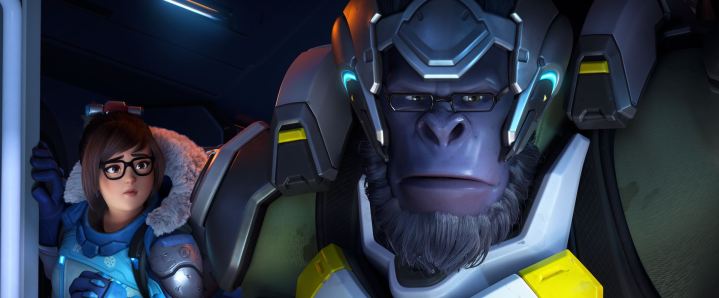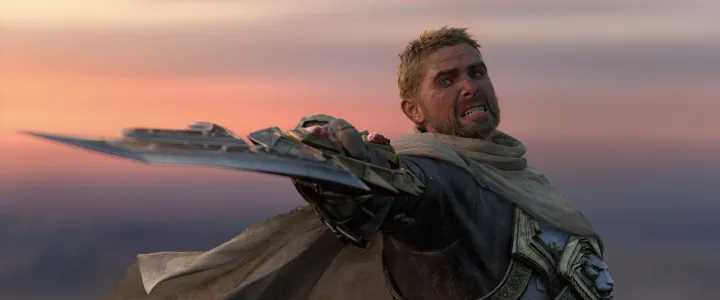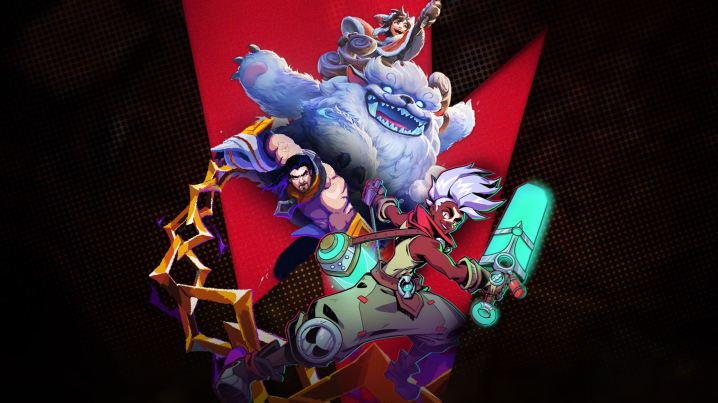
Layoffs have unfortunately become a nearly nonstop occurrence in the video game industry over the past year. In 2023, over 10,000 workers at game studios lost their jobs, according to data from Game Industry Layoffs. In January 2024 alone, Kotaku reports that over 6,000 developers have already been laid off.
Layoffs at Microsoft hit particularly hard for players, as nearly 2,000 Microsoft developers were let go after years of optimistic promises from Xbox leadership over the Activision Blizzard acquisition, and a survival game project was canceled. While that’s been the biggest wave so far this year, we’ve seen plenty of other companies cutting staff, from Riot Games to Eidos.
The high frequency of layoffs is concerning for game developers, but they should also be alarming to those who play and enjoy games. In the wake of such a devastating year and month for the video game industry, it’s worth assessing just how devastating all this can be for the video game medium going forward. What’s happening in the industry will impact you, even if it all seems distant right now.
How the game industry got here
It’s important to understand how we got to this point in the first place. The COVID-19 pandemic led to an unexpected video game industry boom that thoroughly increased the number of acquisitions, mergers, and investments taking place. Investors and management at some of the largest gaming companies began to see hopes of exponential growth that would never end. As Omdia Principal Analyst Liam Deane explained to Digital Trends, that was far from the reality, and now the developers who work at these companies are paying the price for poor decisions by the management at companies like Microsoft, Riot Games, and Embracer Group.
“A lot of investments were made off the back of that bonanza that was fundamentally premised on the assumption that this increased revenue was locked in and the market would continue growing from that higher baseline,” Deane told Digital Trends. “But in fact, what’s happened is the market has returned to something like the pre-pandemic trendline. It turns it out it was more like a one-time windfall than something that created a permanently bigger market. Unfortunately, a lot of the projects that were greenlit in 2020 are not making the returns that were hoped, or are being canceled because publishers or investors no longer believe that they can make those kinds of returns.”
Layoffs in the video game industry are becoming the norm, even at companies that continue to deliver huge profits.
We started to see this impact in 2023, with Embracer Group’s failed deal and subsequent restructuring plan becoming the poster child for the struggles the video game industry was now facing. There was some hope that things would improve heading into 2024, but that has not been the case. In January alone, companies like Microsoft, Riot Games, Eidos Montreal, Unity, Twitch, Thunderful, Behaviour Interactive, People Can Fly, and a whole lot more laid thousands of developers off altogether.
Although the unwise investments these corporations made weren’t the fault of game developers or players, we are ultimately the ones that have paid for it through disappointing developer layoffs and studio closures. Deane doesn’t believe the pace of layoffs will slow down either: “We’re feeling the pain now to a large extent as a result of things that happened three or four years ago.” The industry will have to finish these “adjustments” and normalize again before this stops. Omdia believes that could happen by the end of the year, but those are just expectations and estimations, not concrete reality.
In the meantime, we’re all going to deal with the consequences of these layoffs.
What these layoffs mean for game developers
The most immediate impact of these layoffs is obviously on the developers themselves. There’s clear anger and discomfort from the Blizzard employees left behind, as seen on social media platforms like X (formerly Twitter). For the time being, fewer people will be doing more work while feeling uneasy about their own job security and workplace culture. As the Communications Workers of America aptly puts it: “Microsoft’s announcement that it will be laying off 1,900 video game workers makes clear that, even when you work at a successful company in an extremely profitable industry, your livelihood is not protected without a voice on the job.”
Layoffs like this can also cause massive creative leadership shifts at companies that have lasting impacts on projects. Blizzard Entertainment now has a new President in Johanna Faries, who was GM on Call of Duty prior to this. That’s a significant leadership shift, with Faries even acknowledging, “The loss of talented teammates in recent days is hard to hold side-by-side with the immense excitement I feel about joining Blizzard — and building on the momentum you’ve created for Blizzard’s next chapter,” in an email sent to employees and shared on Blizzard’s blog.

Although Faries says she’s “committed to doing everything I can to help Blizzard thrive,” and Eidos Montreal said “the well-being of our team is our priority” in its layoff announcement, those words ring a bit hollow at the moment. While not personally affected by these layoffs, Pratt School of Art game design professor Jason Corace gave us an idea of how developers feel after layoffs and cancellations like this. “I’ve had projects shelved and contracts broken when a company changes direction or goes through financial hardships,” Corace told Digital Trends. “Making games is a long, tough road, and it can be crushing when, after years of effort, it feels like the rug has been pulled out from under you.”
That’s not a great environment to nurture creativity in at any of the studios that have laid people off, and it’s very possible that we’ll feel the effect of that as players. From the perspective of someone left behind by the layoffs, ZeniMax Workers United-CWA member and Senior Quality Assurance Tester Way Dayberry gave some insight into the effect of layoffs on the developers who were not let go in a statement provided by the CWA.
“Layoffs in the video game industry are becoming the norm, even at companies that continue to deliver huge profits. It hurts to see our coworkers, who are so passionate about this work, who actually make these video game companies so successful, be the first impacted by any cuts of layoffs at work. Companies will claim that we’re all a family, but a family doesn’t lay off or outsource people. It’s clear that one way or the other, the only way forward is for all of us to come together as workers to protect each other.”

The best path forward for developers will likely be to unionize. Although it might not necessarily prevent layoffs, it can lessen the negative impacts of these events by giving workers a voice in the decision-making that results in layoffs like the ones at Microsoft. The CWA believes that “by coming together and exercising their right to organize, workers in the video game industry can make layoff protections standard practice for all workers,” and the fact that no unionized game developers at Microsoft weren’t affected by the layoffs demonstrates that some sort of power shift needs to happen at these game studios if layoffs are to continue like this.
How these layoffs affect players
While the impact on developers is clear, you might struggle to understand how this impacts you as a player. The most obvious loss? There are now just games we’ll never be able to play. Blizzard Entertainment’s survival game, Eidos Montreal’s next Deus Ex game, or any future projects that were in development at Riot Forge will now never see the light of day. Those are experiences that could have been innovative or popular, but we’ll now never know.
As players, we have to consider the effects on the developers that will make the game we play, now and in the future. Corace tells me that some of the students he teaches at Pratt are concerned by these layoffs because the recruiters they were speaking to for internships were let go in the middle of the hiring process.
“I always tell my students to think broadly about play, games, and interactivity and what kinds of careers they could have outside or alongside the game industry,” Corace says. “This is partly informed by having so many former talented students work in the industry for many years only to leave due to unstable and sometimes unhealthy working conditions.”
Companies making cuts right now might ultimately come to regret it, but it could be years before the chickens really come home to roost.
The loss of that kind of talent, both from developers at these studios and up-and-coming students, is tough to quantify, but it’s a downside that the video game industry and players alike must grapple with. There’s no obvious solution to all this either.
“At the AAA level, there seems to be increasing demand to make bigger and bigger games that are supported longer, which doesn’t seem sustainable or healthy for developers, players, or the medium,” Corace says. “Perhaps it’s my age, but I would love to see more industry money focus on shorter games made by fairly paid smaller teams that I can play in a night or two days.”

There’s a direct connection between the health of the game studios making our games and the experiences we receive, and unfortunately, poor financial decisions are messing things up badly right now. Even if it’s years before we see the true fallout, there will be negative repercussions for everyone down the line.
“Cuts to development budgets now will likely manifest three, four, or even five years down the road as new games and content fail to emerge,” Deane tells Digital Trends. “For Microsoft in particular, this looks like a huge risk. The Xbox release slate is already looking pretty thin, and by cutting back on ABK projects like Blizzard’s unannounced survival game, they risk undermining the very thing that was meant to improve that content pipeline. So many of the companies making cuts right now might ultimately come to regret it, but it could be years before the chickens really come home to roost.”



